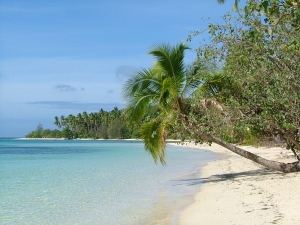The world celebrates the International Day Against Homophobia, Biphobia and Transphobia on 17 May. To mark the day, Paula Gerber reflects on the ongoing criminalisation of homosexual conduct in the Pacific.
The United Nations recently invited people to imagine what it would be like if you were not free to be you. If the only sexual orientation you were allowed to express was a heterosexual one. For people in 80 countries around the world, this requires no imagination, because it is their day-to-day reality. That is why IDAHO – the International Day Against Homophobia, Biphobia and Transphobia – is so important.

Much of the recent media coverage of the persecution of LGBTI people has focused on Russia due to its hosting of the Sochi winter Olympics, and African countries such as Uganda and Nigeria because of their passing of anti-homosexuality legislation that imposed harsher penalties for LGBTI ‘crimes’ and created even more offences, including ‘aggravated homosexuality’.
One region that has received very little media coverage when it comes to LGBTI issues is the Pacific. There are nine Pacific countries that still criminalize homosexuality. And LGBTI individuals in many of these countries are regularly subjected to discrimination and persecution.
For example, in Papua New Guinea, gay sexual activity is punishable by up to 14 years imprisonment. Although this is rarely enforced, the government recently indicated to the UN Human Rights Council that it would not repeal the offensive laws. Classifying homosexuality as a crime, even if it is not strictly enforced, has a chilling effect on LGBTI communities, for it signals to them they are not tolerated by society and can still be arrested at any time.
It forces gay men to live in fear and remain closeted. One local gay activist observed ‘Men who have sex with men or who are transgendered tend to be “hidden” by being married and hiding behind their wives, “laplaps” or their own beards. It is very complicated and disclosure of sexuality is not recommended.’
This forced non-disclosure, may be one of the reasons why Papua New Guinea has one of the highest rates of HIV infections in the world, with 2% of the adult population being HIV positive. If PNG refuses to decriminalize homosexuality on for human rights reasons, it should consider doing so as a means of improving health.
Opposition leader, Dame Carol Kidu, has called for such action, noting that criminalizing homosexuality drives same-sex acts ‘underground’ and encourages risky behavior, and to decriminalize homosexuality will help to reduce the HIV rate, which will benefit the entire country.
The Solomon Islands is another Pacific country that criminalizes homosexuality and has deeply entrenched homophobia. In 2008, the Law Reform Commission proposed removing criminal sanctions for homosexuality, but the plan did not proceed after fierce public objection. One opponent of the reform stated that ‘Legalizing gay and lesbian in the country would only encourage the breed of more,’ and the Solomon Islands is a ‘long time Christian country’ that should never think of legalizing gay sex.
After this failed attempt at reform in the Solomon Islands, change seems far away. Indeed, churches from as far away as Nigeria are sending pastors to many countries in the Pacific, including the Solomon Islands, in an attempt to spread their anti-LGBTI ideology across the region.
There are unlikely to be advances in LGBTI rights in the Pacific until such time as homosexuality is no longer classified as a crime. Vanuatu and Fiji have shown leadership in the region through their decriminalization of same-sex conduct in 2007 and 2010, respectively.
Since then Fiji has hosted an LGBTI themed short film festival and become only the second country in the world to include a constitutional prohibition on discrimination on the grounds of sexual orientation or gender identity and expression (the other country being South Africa).
LGBTI Fijians still face discrimination, including the police, in 2012, cancelling a permit for the first ever Pride march which had been organized for IDAHO. But at least they no longer live in fear of being arrested just for being gay.
In some Pacific nations, there are signs reform may not be too far away. Palau, Nauru and the Cook Islands, all told the UN Human Rights Council, in 2011, that they are willing to repeal their laws that criminalize homosexuality (although this has not yet happened).
However, Papua New Guinea, Samoa, the Solomon Islands and Tonga have all indicated exactly the opposite; that they have no intention of decriminalizing. Nevertheless, a commitment to the decriminalization of homosexuality by three Pacific countries suggests reform is beginning in this region.
This article was originally published on GayStarNews. Read the original article.
To receive notification of new posts, click “sign me up” at the top.
To become a Castan Centre member (it’s free), click here.
To Follow the Castan Centre on Twitter, click here.

One response to “IDAHO Day Post: Why the Pacific islands are no gay paradise”
[…] IDAHO Day Post: Why the Pacific islands are no gay paradise […]